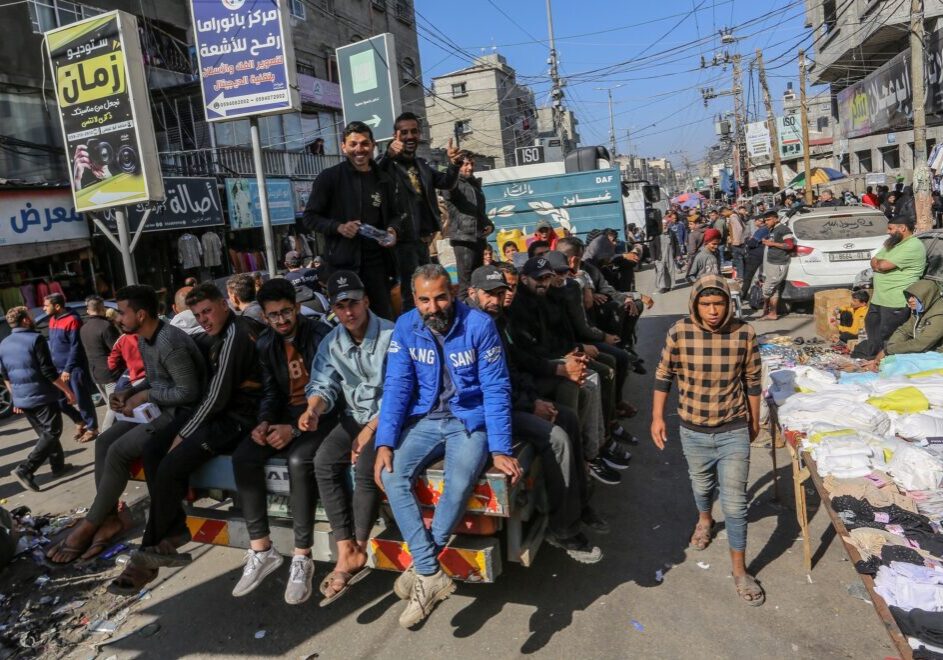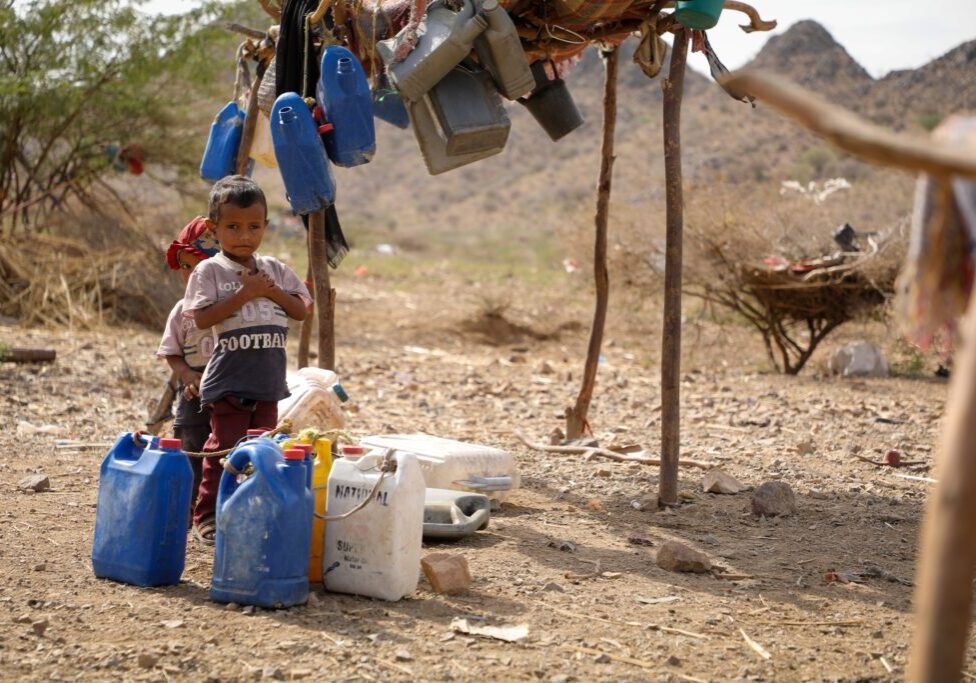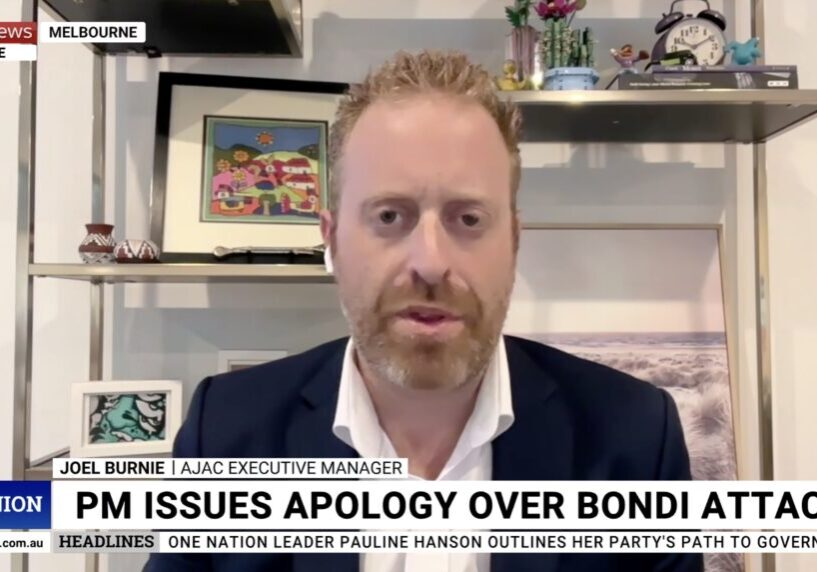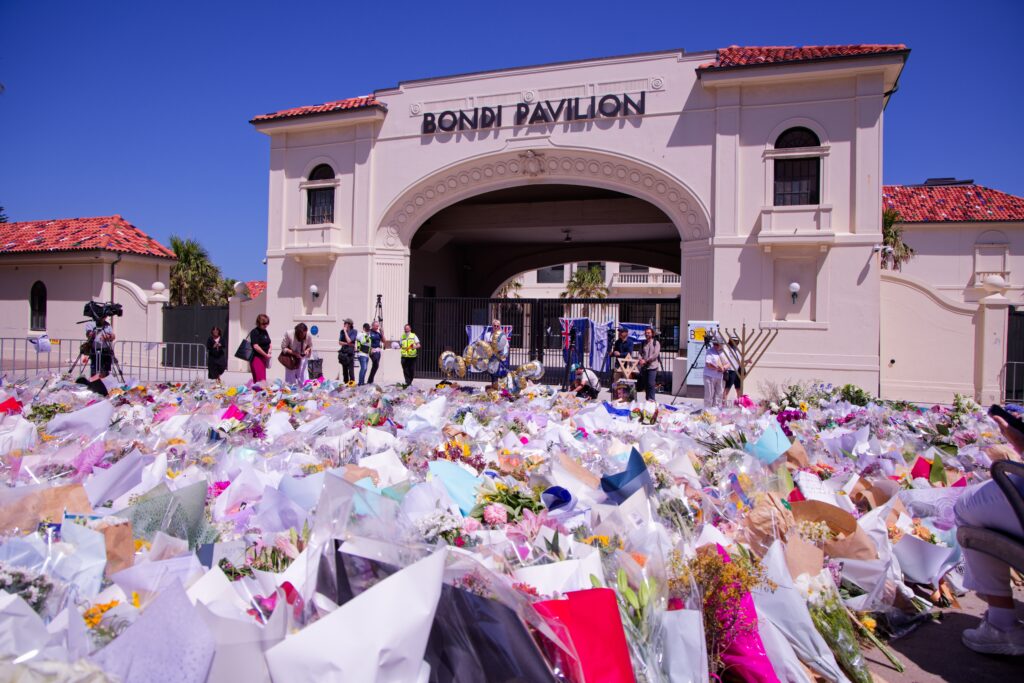FRESH AIR
After her own release, Kylie Moore-Gilbert helps others
March 3, 2021 | Naomi Levin
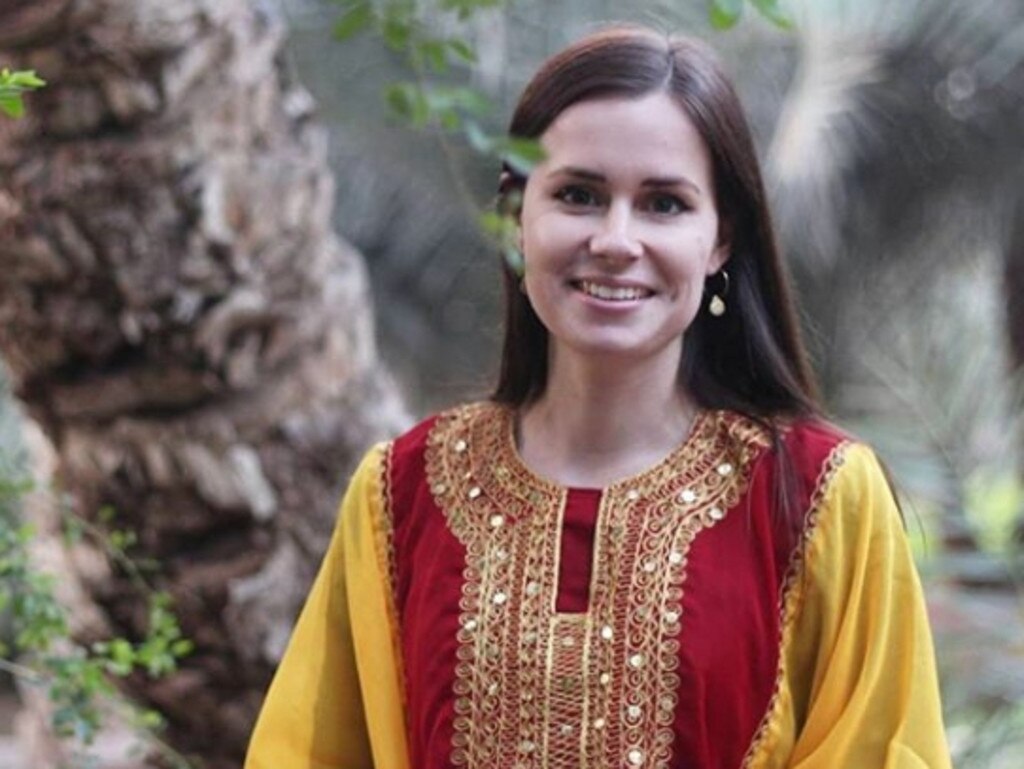
A little over three months ago, Australian academic Dr Kylie Moore-Gilbert was spirited out of Iran after two years imprisonment in some of the world’s worst jails.
Moore-Gilbert could be forgiven for laying low and adjusting to life back home after her long incarceration on falsified charges of espionage. Instead, the University of Melbourne academic has been using her profile to draw attention to gross human rights abuses in Iran.
Moore-Gilbert has also shared some limited insights into her imprisonment, demonstrating her incredible fortitude and strength.
Ward 2A of Iran’s Evin Prison houses political prisoners and is notorious for the torture inflicted by its Islamic Revolutionary Guard Corps (IRGC) jailers. It was Moore-Gilbert’s home for nearly two years and she undertook a hunger strike to protest the conditions.
On Twitter, she has written of her 12-month long solitary confinement: “2A is not designed for prolonged habitation, its very purpose is to break prisoners psychologically for interrogation.”
Prisoners are filmed 24-hours a day, even when using the bathroom. Inmates are blindfolded whenever they leave their cells, even for fresh air. In their cells, there are no pillows or mattresses, there are no chairs or tables. Medical treatment is dispensed as a “reward” for cooperation, she reported.
She called Evin’s prison hospital “filthy” and said it ignored COVID-19 protocols. “Many prison staff don’t even wear masks (& IRGC believe covid is a conspiracy theory and don’t take it seriously) in public prison wards, prisoners must buy masks themselves, with no antibacterial gel available,” she wrote of the experience.
Despite this horrendous treatment, Moore-Gilbert was able to make up little games when she shared a cell.
“In my cell in 2A we had 2 rules,” she wrote on Twitter in January. “If we saw [Manchester City Football Club coach Pep Guardiola] on TV we had to jump. When this song [Iranian pop song “Bist Hezar Arezoo” or “20,000 Wishes”] came on the radio we had to get up and dance.”
During her imprisonment, the Middle East scholar also spent time in Qarchak Prison for women.
Again, making light of what must have been an unimaginably desperate situation, in early February Moore-Gilbert celebrated the return of her luggage to Australia – including some biscuits and snacks she had been allowed to purchase from the Qarchak Prison shop.
But beyond her brave attempts to try to comprehend her situation, Moore-Gilbert has dedicated her energies to also helping others who find themselves wrongfully detained in Iran.
For the past few years, Iran has played a game of hostage-taking for political gain. The Supreme Leader Ayatollah Ali Khamenei and his henchmen in the IRGC detain foreign or dual citizens while they are visiting Iran. Then they use them as pawns – extracting hefty concessions from other governments, mostly Western, before they are prepared to release the prisoners.
Among those currently detained in Iran are Britons Nazarin Zaghari-Ratcliffe and Anooshe Ashoori, Swede Ahmadreza Djalali, French Farida Adelkah, German Nahid Taghavi, Austrian Masud Mossaheb and Americans Morad Tahbaz, Emad Sharghi, Baquer Namazi and Siamak Namazi.
Moore-Gilbert has drawn attention to the plight of these 10 men and women.
She has implored the IRGC to release 66-year-old Taghavi saying, “we hold grave fears for her physical and psychological health.” She has condemned the additional punishments meted out on Ashoori for smuggling out messages about the spread of COVID-19 in Evin prison. She has advocated for Zaghari-Ratcliffe to be allowed to return to the UK on her release date of March 7. She deplored the detention of anthropologist Adelkah, saying she should be “celebrated by her homeland, not locked up and silenced.” She called out conservationist Tahbaz’s detention as “a shambolic witch hunt.” She also mourned the third anniversary of the mysterious death of Canadian-Iranian academic Kavous Seyed-Emami after 17 days of interrogation in ward 2A of Evin prison.
All of these individuals have one thing in common: they are jailed for political offences, which they completely deny and which are pretty obviously absurd. Some are even accused of the same trumped-up charge as Moore-Gilbert: spying for Israel.
Yet in some cases, representatives of the regime can be privately quite frank that they know the accused is not guilty and the individual is being held purely as a hostage. In an important piece in the Wall Street Journal last week, another released foreign prisoner in Iran, American Wang Xiyue, revealed that:
“My interrogator made clear that my sole ‘crime’ was being an American. He told me I was to be used as a pawn in exchange for U.S.-held Iranian prisoners and the release of frozen Iranian assets. (I was released in a 2019 prisoner swap.)”
In Moore-Gilbert’s case, she was sentenced to 10 years jail. She was released early only after a complex prisoner swap that saw the release of two Iranians imprisoned in Thailand over a plot to bomb Israeli targets in Bangkok.
Speaking to AIJAC Live Online, Elliot Abrams, who was US Special Representative to Iran in the Trump Administration, called these wrongly detained prisoners “human sacrifices”.
“This is pure and simple hostage-taking,” Abrams said. “I would hope that first of all, we do get an international consortium to talk about this and I would think the answer is more economic sanctions, and not just by the United States, but by all of the countries that have hostages in Iran, or fear that Iran may do this to them. That is the only way it is going to stop.”
This work has begun. Australia, and 58 other countries, have signed on to a Canadian-led declaration condemning the arbitrary arrest of foreign nationals by regimes in order to exercise leverage over a foreign government. The declaration does not single out any one country, but follows high profile detention of foreign nationals by China and, most recently, Myanmar, as well as Iran.
After expressing Australia’s support for the declaration, Australia’s Foreign Minister Marise Payne told media: “Australia will hold countries to account for their international commitments and the obligation to comply with international laws and practices”.
Another step the Australian Government is taking, albeit very slowly, is considering ways of enhancing Australia’s autonomous sanctions regime to more effectively punish human rights offenders. This is often referred to as Magnitsky-style legislation – named after a 2009 case involving the mysterious death of Russian lawyer and whistle-blower Sergei Magnitsky. These laws allow governments to impose hefty sanctions, such as travel bans or asset freezes, on human rights abusers, regardless of where their offences were committed.
Last year, at the request of Foreign Minister Payne, the Joint Standing Committee on Foreign Affairs and Trade held an inquiry into whether Australia needed to beef up its laws in this regard. The Committee did not target any one country, but heard evidence from experts that similar legislation had been used in overseas jurisdictions to sanction individuals involved in abuses in Myanmar, Saudi Arabia, Venezuela, Russia and North Korea.
The committee also heard evidence that these laws could be effective against Iranian human rights violators, such as the IRGC officials responsible for wrongfully detaining so many dual Iranian citizens (and non-dual citizens like Moore-Gilbert).
Following this inquiry, the Committee recommended that the Australian Government pass “new, stand-alone targeted sanctions legislation.”
Foreign Minister Payne is yet to act on the Committee’s recommendations, but it seems more than reasonable to assume that Moore-Gilbert would be pleased if Australia had the legislative framework available to sanction her jailers and deter them from continuing their hostage spree.
In marking two months since her escape from Iran, Moore-Gilbert wrote on social media “I can never regain the 2+ years which were stolen from me, but I am looking to the future with strength, positivity and a renewed appreciation for what I’d long take for granted – justice and freedom.”
Tags: Iran, Kylie Moore-Gilbert
RELATED ARTICLES

Security concerns over Herzog visit a terrible indictment: Joel Burnie on Sky News

Allegations against Israeli President Herzog are absurd: Colin Rubenstein on ABC News






